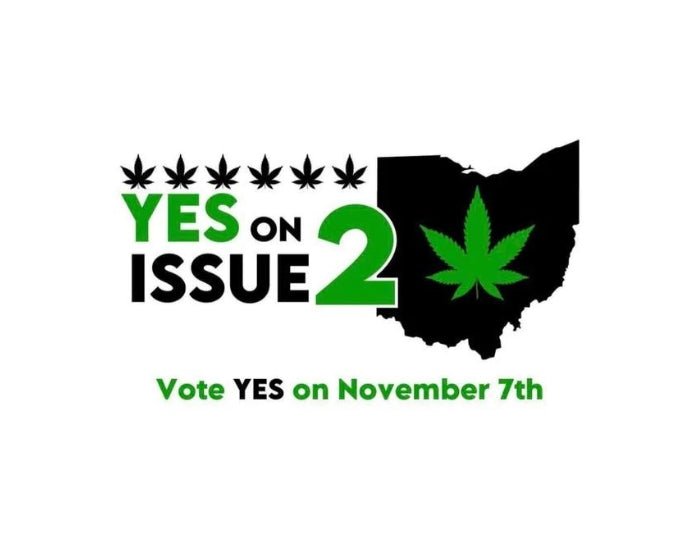The state's Supreme Court will ultimately decide if the cannabis reform measure appears on the ballot in 2024.

A date has finally been set by the Florida Supreme Court to hear oral arguments for and against whether a marijuana legalization initiative will be included on next year's election ballot. According to multiple media outlets, the court has chosen November 8 for both sides of the dispute to make their respective cases.
Over the summer, the court received legal briefs from the state's attorney general, Ashley Moody (R), who opposes the cannabis reform measure and has filed a legal challenge asking for it to be invalidated, as well as the Smart & Safe Florida campaign, which has gathered over one million signatures and raised close to $40 million in support of the initiative.
In June, Moody submitted a brief outlining her reasoning for excluding the reform measure from the 2024 ballot. The crux of her argument to invalidate the ballot initiative is wholly predicated on how the ballot summary is written, which she contends is affirmatively misleading to voters on several grounds.
According to Moody, the legalization measure should be excluded from the ballot for the following reasons.
- The initiative fails to adequately inform voters that even if they approve the measure, marijuana will remain illegal under federal law.
- The proposal suggests that the number of retail outlets available to consumers would increase if passed when, in truth, it only maintains the state legislature's ability to expand retail operations, with no guarantee that lawmakers would have the desire to do so.
- The ballot summary is also misleading because it leaves "reasonable voters" with the impression that the measure "limits the scope of the immunity" to possess up to three ounces of cannabis.
- Perhaps most importantly, the ballot initiative fails to mention that the Florida Department of Health will lack the same constitutional authority to effectively regulate the proposed recreational marijuana market that it currently enjoys with the medical cannabis industry.
One of Moody's main points of contention is that the initiative does not clearly communicate that, if approved, only medical marijuana companies would be allowed to begin selling adult-use cannabis to adults 21 and older, with no guarantee of increased marketplace competition.
As her brief explains, "Floridians would likely care about this issue because greater competition in the marijuana marketplace would decrease retail prices and increase the quality and professionalism of marijuana producers and retailers. But currently, only [Medical Marijuana Treatment Centers] are licensed to engage in the marijuana trade in Florida, and the proposed amendment would not change that."
"Floridians would likely care about this issue because greater competition in the marijuana marketplace would decrease retail prices and increase the quality and professionalism of marijuana producers and retailers. But currently, only [Medical Marijuana Treatment Centers] are licensed to engage in the marijuana trade in Florida, and the proposed amendment would not change that."
- Legal Brief Filed by Florida Attorney General Ashley Moody
Notably, almost all of the $40 million contributed to the Smart & Safe Florida campaign has come from Trulieve, one of the country's largest cannabis multi-state operators. Moody has accused the company of trying to attain a "monopolistic stranglehold" on the state's cannabis market through its overwhelming financial and political support of the measure.
For their part, activists and supporters of the Smart & Safe Florida campaign say they have thoroughly vetted the proposal and are supremely confident the court will validate their argument that it complies with all constitutional requirements.
If the court sides with the campaign and the initiative makes the 2024 ballot, it would still need at least 60 percent of Florida voters to approve the measure to pass. Current polling indicates that it would most likely receive the required votes to become law.
However, history is not on the side of the campaign and its legion of supporters. According to the Tallahassee Democrat, The Florida Supreme Court has rejected five of the past nine voter initiatives it's reviewed, including two previous attempts to circumvent the legislature via voter ballot initiatives on issues pertaining to cannabis legalization in recent years.
In addition, the court also has powerful ties to Florida Gov. Ron DeSantis (R), who appointed five of the seven justices and has stated on numerous occasions his intense opposition to any legislative or ballot-driven efforts to legalize recreational cannabis in the Sunshine State.
The scenario playing out in Florida is compelling for many reasons, the most notable being the growing and brazen influence of large marijuana multi-state operators on the political process behind legalization efforts in wealthy state markets like Florida, Texas and New York.
Cannabis should be legal across the board. The science supporting legalization is undeniable. The money is irresistibly enticing from a potential entrepreneur and tax revenue perspective. And, most importantly, the people want it. However, allowing monster corporations like Trulieve to take control of the political and legal process behind legalizing marijuana is setting a dangerous precedent.
Hopefully, cannabis reform will happen sooner rather than later in Florida. But it is better to prolong the wait and get it right than rush to the dance with the first partner to ask and regret that choice for a very long time.







































